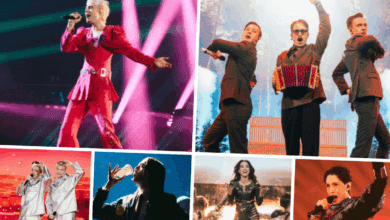Eurovision 2025 in Basel: audience success, festive atmosphere and televoting in question - Wrapping it Up!
After the 2024 edition in Malmö was marked by a heavy and oppressive climate, with extreme security measures linked to the participation of Israel, the cancellation of festive events and controversies such as the controversial elimination of Joost Klein, there were doubts as to whether the 2025 edition would run smoothly. Many wondered whether the competition could really bounce back.
However, the figures communicated by the EBU speak for themselves: 166 million viewers in 37 countries, 3 million more than in 2024, with a record audience among 15-24 year-olds of 60.4 % - the highest ever! Switzerland also shone, with an audience increase of 57 %, while on the digital front, the numbers were through the roof, with over 12 million views on YouTube, hundreds of millions on TikTok and Instagram, and votes from 146 countries. In short, this year's event was a success on all fronts.
But beyond the impressive figures, what was it really like to be there? We were in Basel to experience Eurovision week from the inside, and we can tell you straight away: Switzerland rose to the challenge with flying colours!
Table of Content
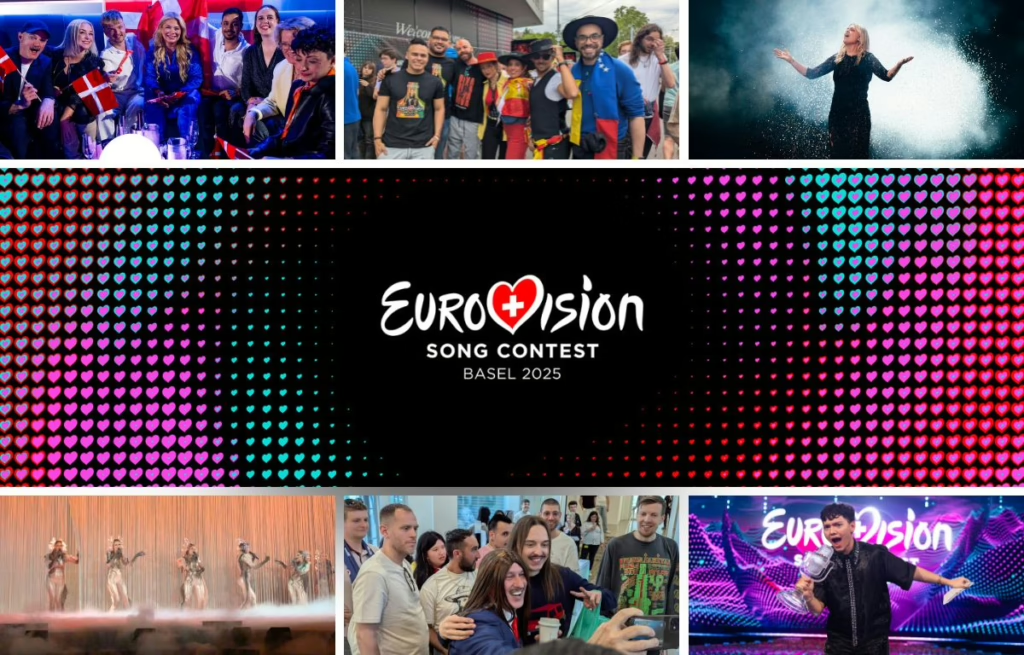
✅ A city at Eurovision time
Basel hosted the event in style, with a level of enthusiasm not seen since Liverpool in 2023! The atmosphere in the city was exceptional, with plenty of entertainment, "Eurovision Friendly »" shops, fan rallies, and very good weather that allowed everyone to make the most of the festivities. The turquoise carpet » snaked its way through the city, a kilometre long, offering an unprecedented moment of popular fervour in the heart of the Rhineland city. It has to be said that last year's turquoise carpet was so disappointing, with very few spectators due to increased security measures, that we could only expect much better this year. And the gamble paid off!
The Eurovision Village and Euroclub, located in the centre of Basel, also gave fans the chance to meet their stars, watch live broadcasts of the shows and, above all, party all week long. A special mention must go to the Eurovision karaoke tram (sponsored by Ricola), whose booking site quickly sold out. A great idea for bringing fans together, and one that deserves to be repeated in the future.
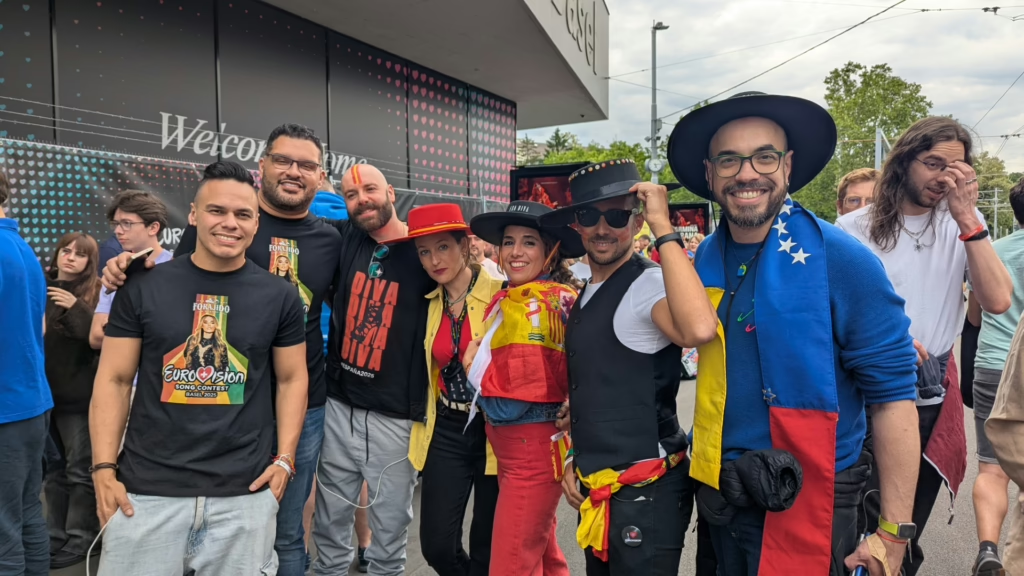
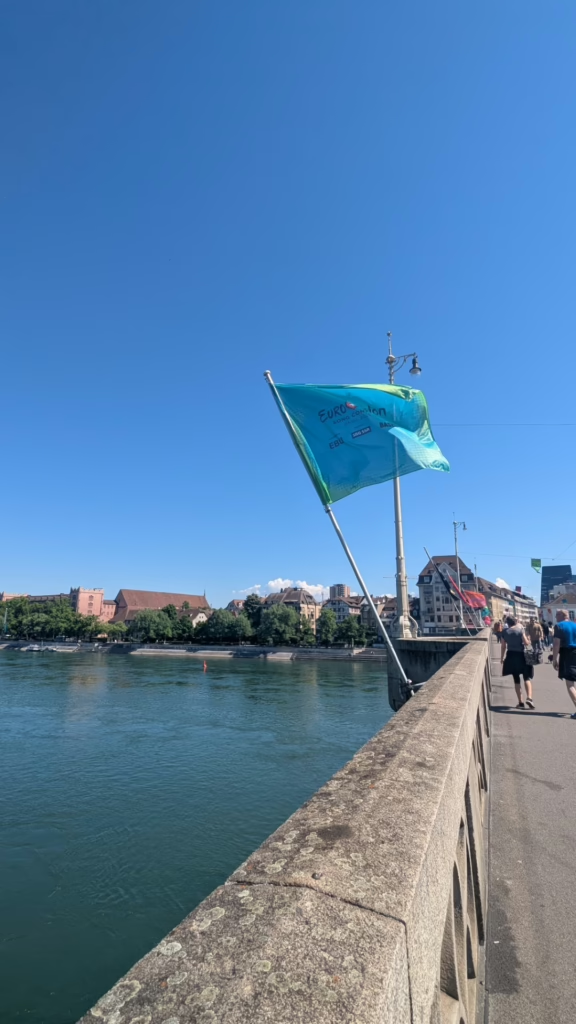

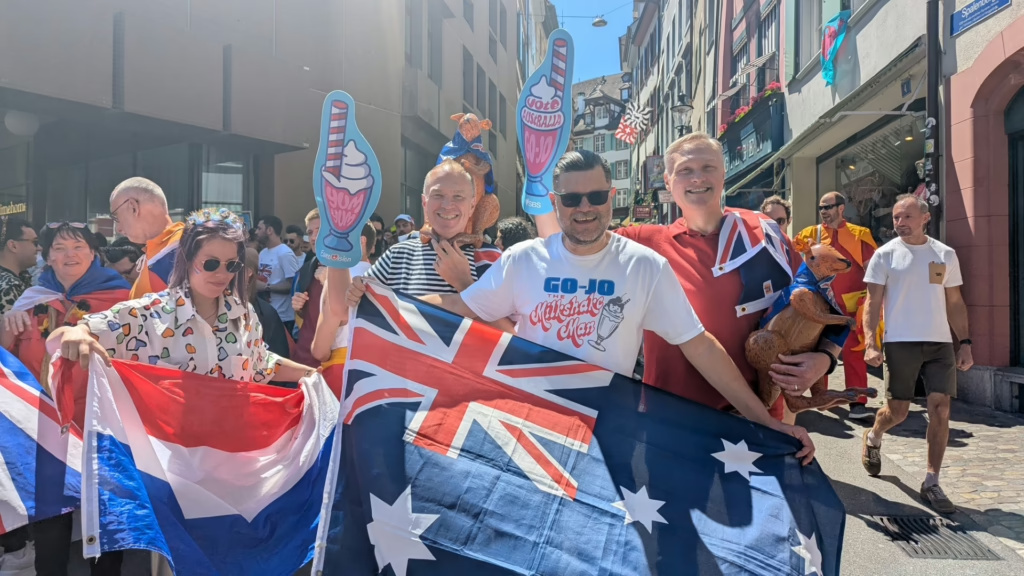
We also enjoyed the Helvetia Campus, where, thanks to the Wiwibloggs teams, a number of artists were on hand throughout the week for interviews, meetings with fans and autograph sessions. A real moment of sharing and generosity!
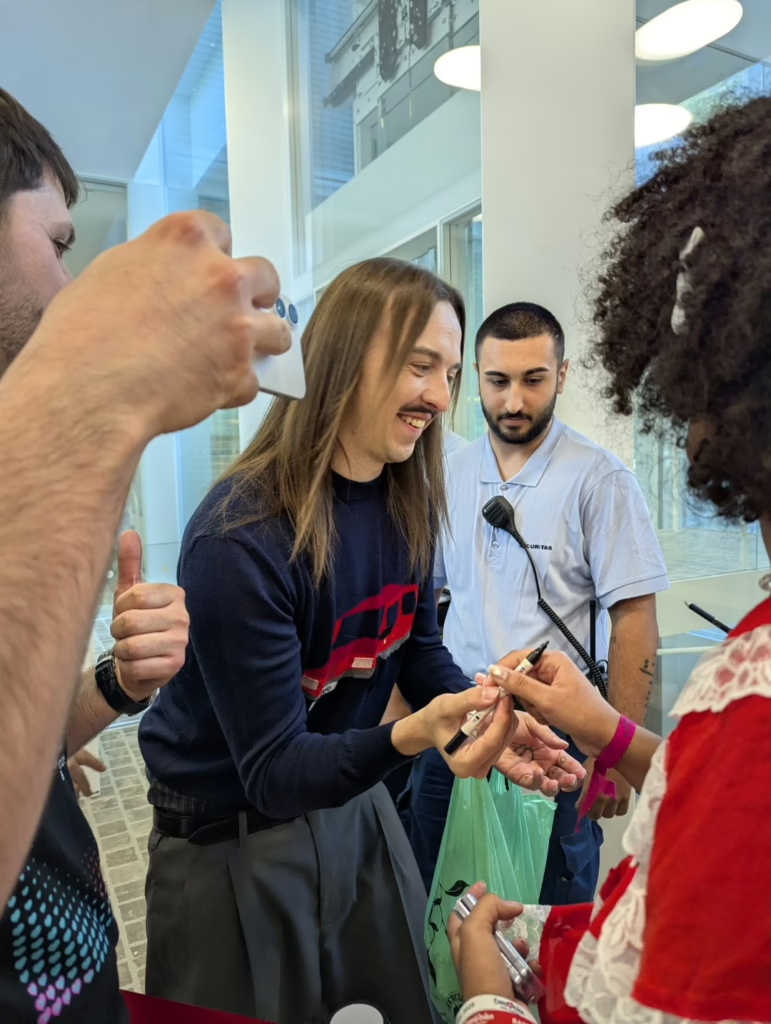
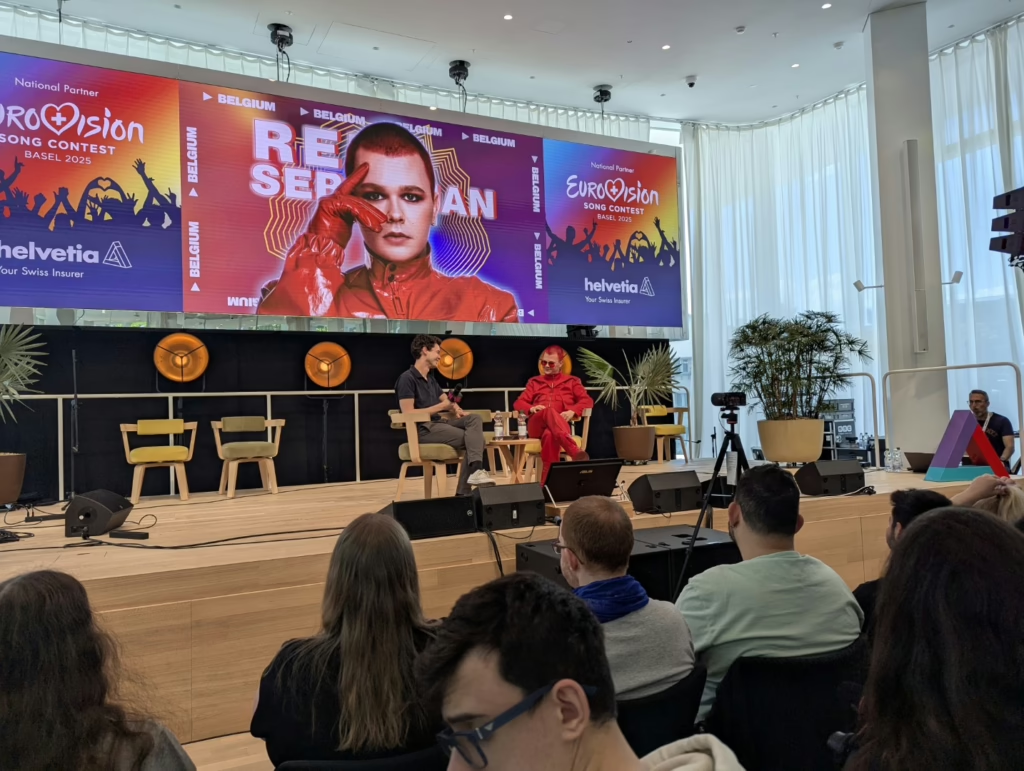
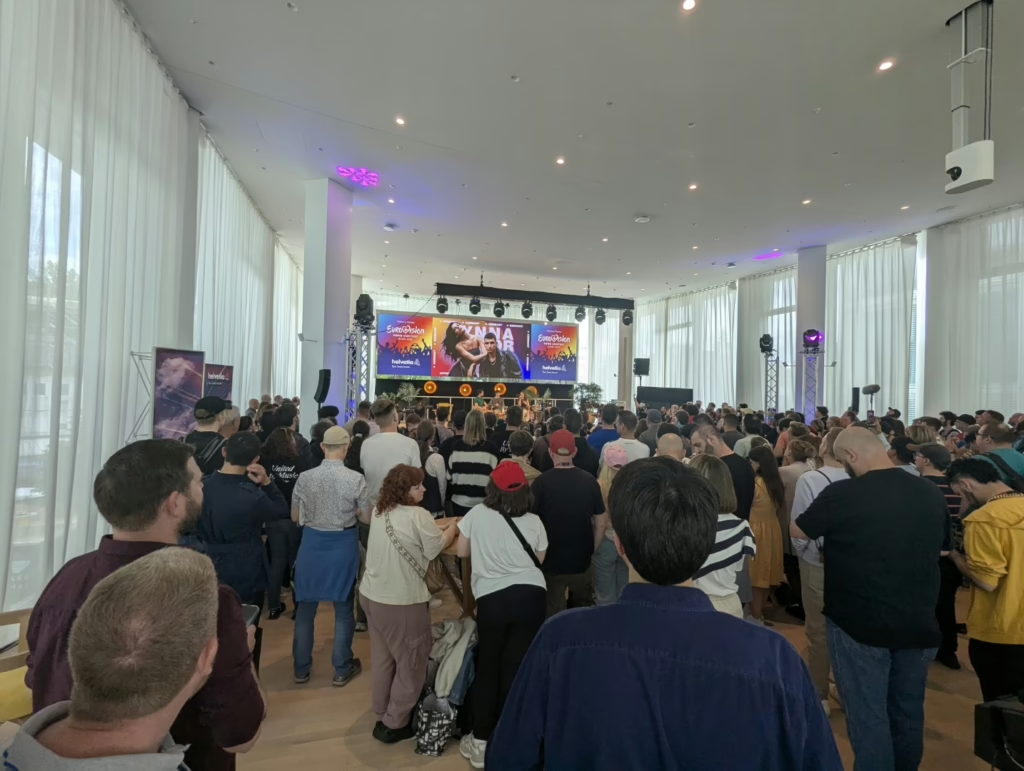
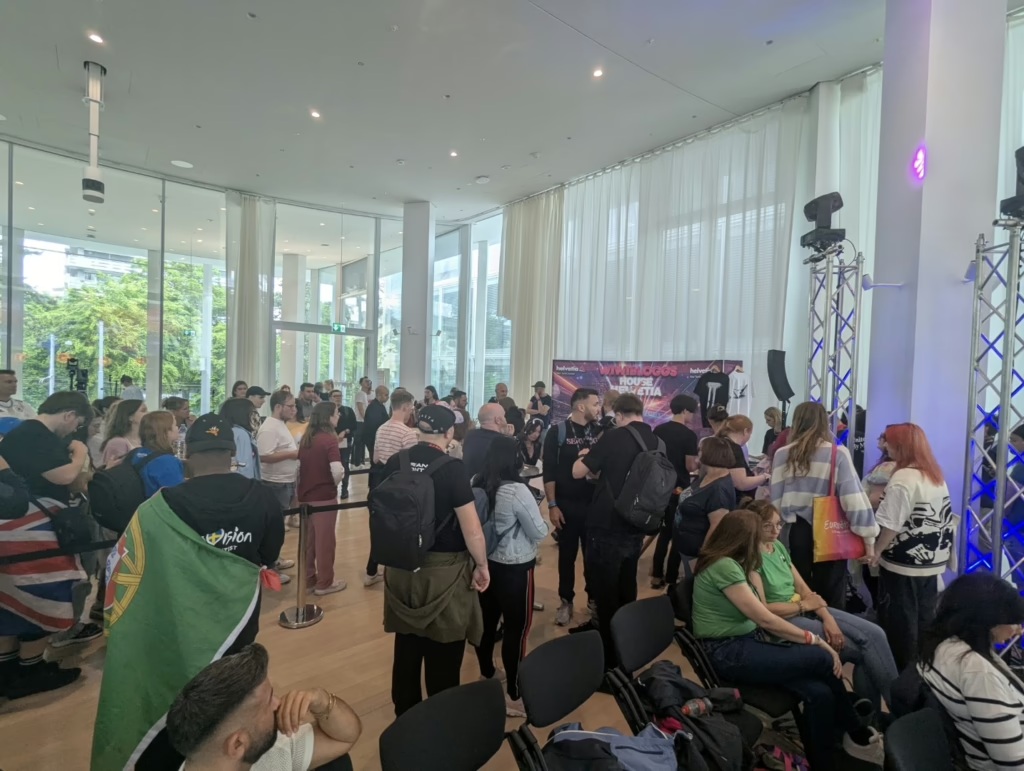
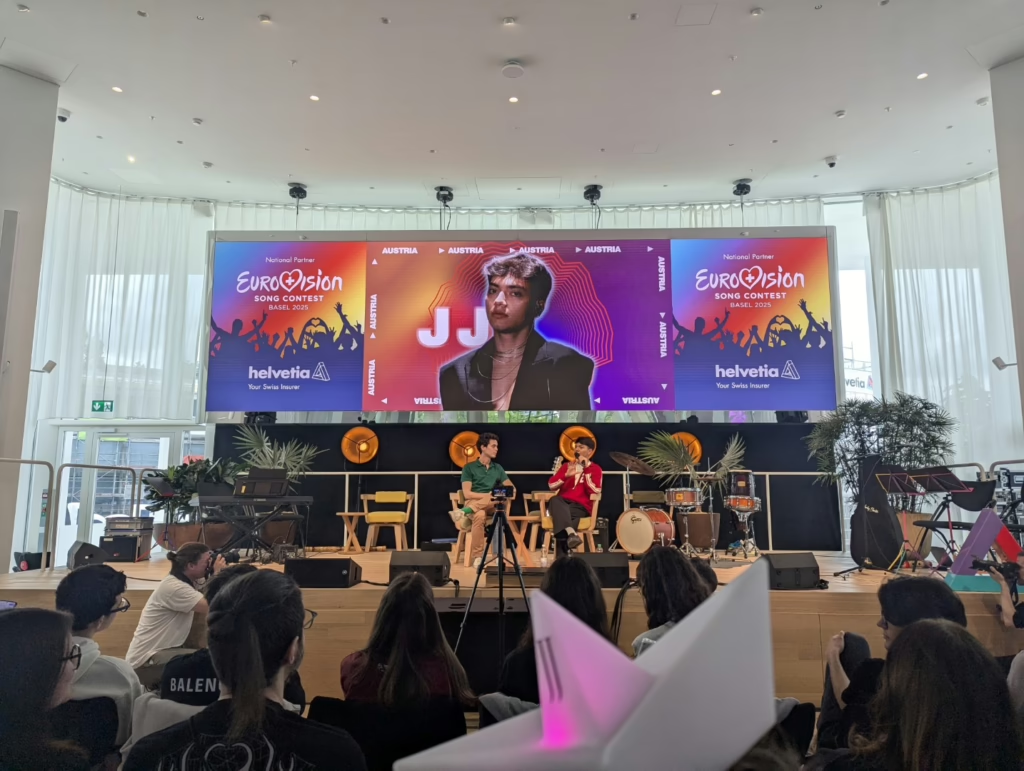
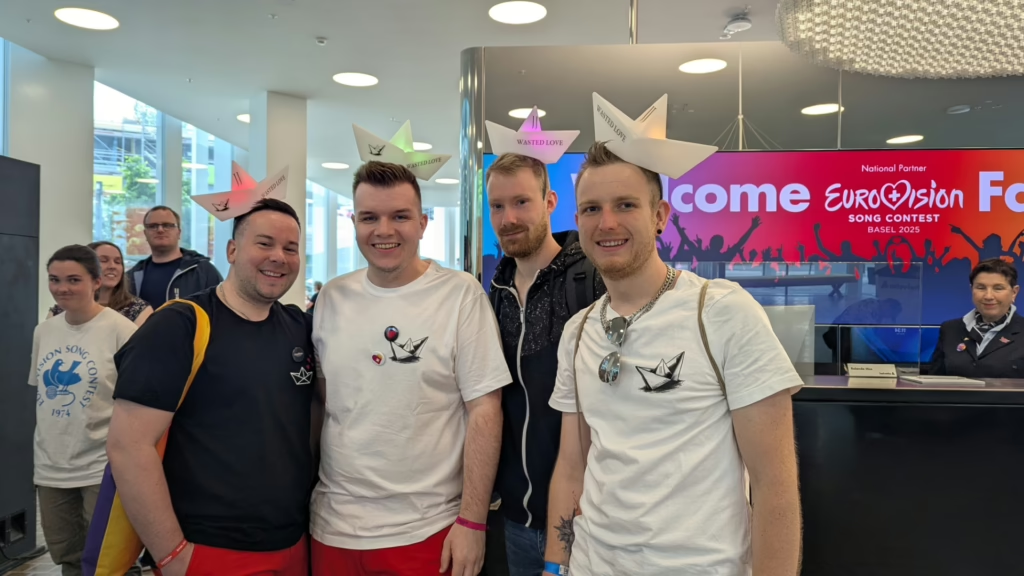
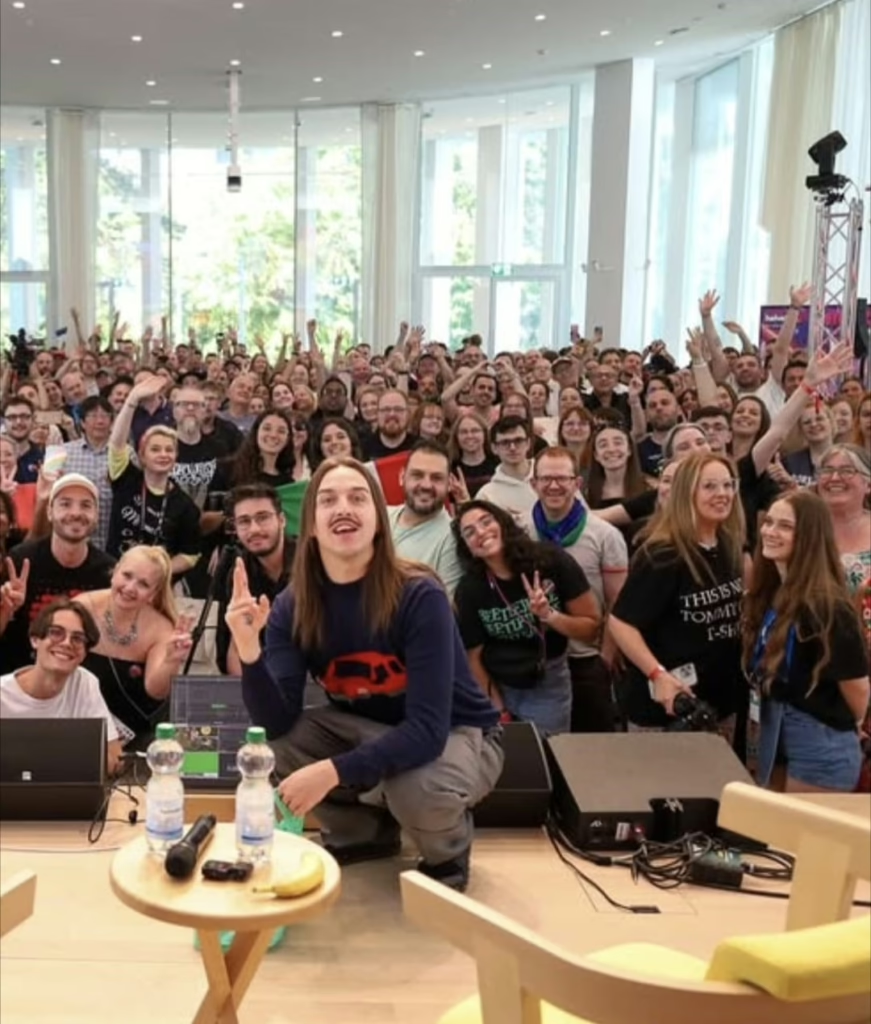
✅ Getting around the city
Unlike Liverpool, where all the entertainment was within walking distance of the docks, St Jackobson Halle was not ideally located near the Euroclub and Eurovision Village. The Baltic metropolitan area had also chosen to make public transport free for show ticket holders, thus making it easier to get around in a city that is not always cheap (espresso, for example, is not always cheap). macchiato was still sold for €5, ouch). Another very good point for the city of Basel!
🤔 A spectacular Eurovision stage... but not for everyone
One of the big disappointments this year was the stage. Yes, it was sublime, with the usual impressive televised rendering. Unfortunately, its configuration took up around 1/3 of the venue's capacity to position the green room opposite the stage. As a result, the St Jackobsonhalle was one of the venues with the smallest audiences. We're talking about 6,000 people per show. And... yes, you could see it on the screen.
Ticket sales were "a » success" according to the organisation's spokespersons, but can we really use this qualifier when more than 300,000 pre-registered people try in vain to buy a ticket and all the seats are sold out in less than 10 minutes? One has to wonder. Admittedly, a queuing system had been set up by the ticket office, but it didn't really obey any rules. And when the page showed the availability of a seat, the time it took to click on the ticket was already "unavailable ». Assigning tickets randomly would have been fairer...
As for the seats in the arena, some spectators seated in the side pits were able to watch the performances of the artists performing on the front of the stage... from behind.
Admittedly, the Eurovision show is made primarily for television, but it would be a good idea to offer all fans an inclusive experience. Fortunately, perhaps mindful of the narrowness of the venue, Basel has come up with a back-up solution for all those who have missed out on the live show: the Arena Plus. What a marvellous idea to bring together 35,000 spectators in a stadium a stone's throw from the arena, around 4 giant screens on the evening of the final. The atmosphere was great, there was singing, dancing and vibrating, and everyone held their breath until the final points were awarded to Austria. The Arena Plus is a great idea, and one that future host cities should pursue!
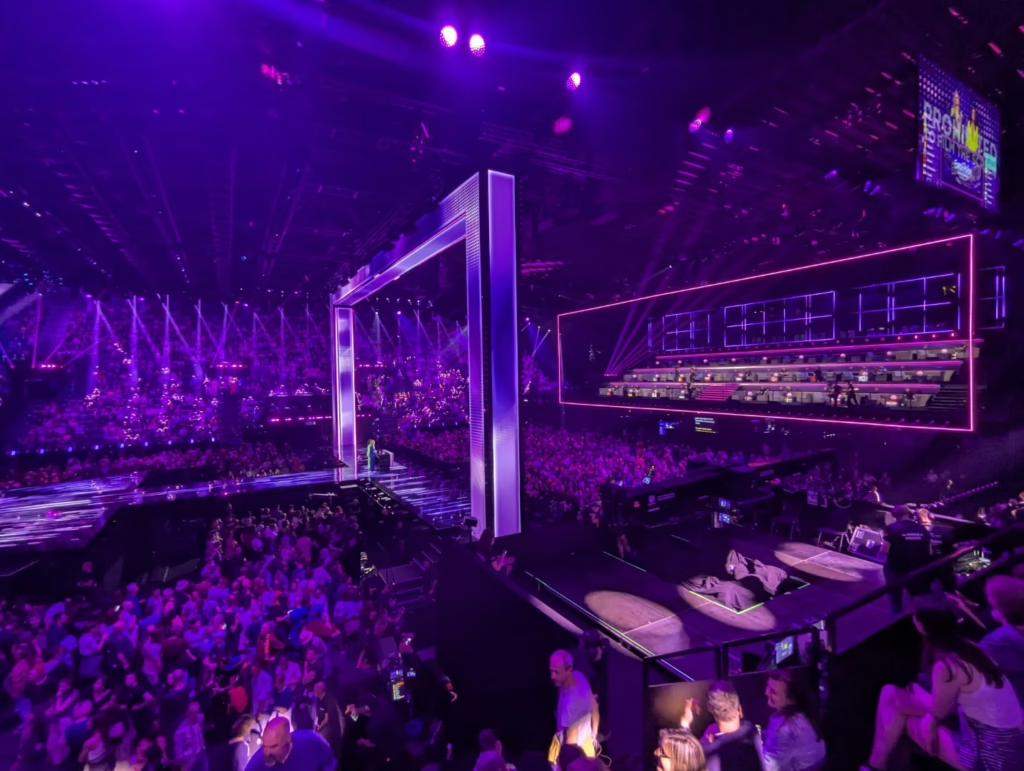
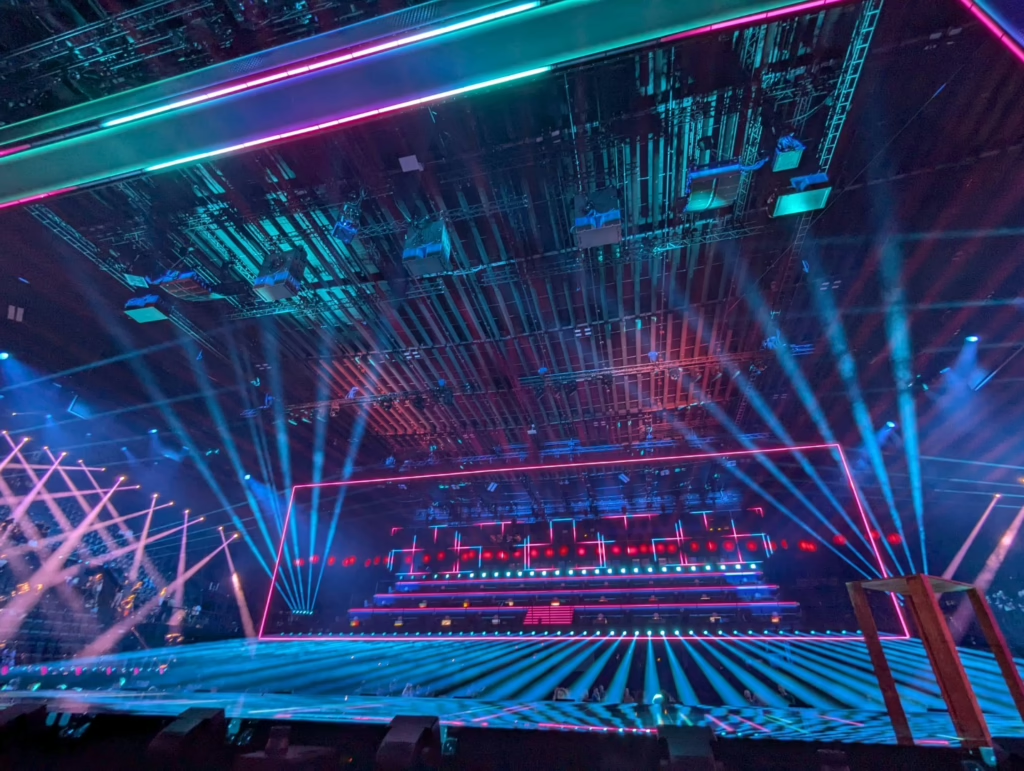

🤔 Flag policy
The issue of flags remains one of the big black spots this year. While some large flags were banned, others just as imposing passed through without any problem. The result was inconsistent management, a source of confusion and frustration for fans. And what about the ban on flags in the colours of the LGBT+ communities? An incomprehensible decision, given the extent to which this community has carried, supported and sometimes even saved the competition over the years.
❌ Hide this skin and these words...
The lyrics of the song by Miriana Conte (with Serving Kant) were censored, as some broadcasters found the lyrics offensive, and Erika Vikman was asked to change her outfit, which was deemed too suggestive... even though several male artists went on stage shirtless, without the slightest comment being made. Double standards? We don't quite understand the criteria applied, or perhaps it was simply a case of adding a little drama where there really wasn't any...
✅ Semi-finalists announced
We weren't really in favour of changing the way the semi-finalists were announced. The current system, which consisted of listing each country until the last, seemed to us to be sufficient. However, it is true that we were deprived of the reactions of the shortlisted candidates, and by the time the camera got to the finalist, the initial emotion was no longer there.
This year, the production had opted for a three-country split-screen system to be sure of getting the reaction of the selected "hot" ». Although this system was initially disconcerting, it actually proved to be quite readable and dynamic on screen, with the reactions of the qualified candidates captured immediately each time.
As every year, there are also many rumours surrounding the awarding of jury points and the televoting for the final, with some countries wanting to reduce the length of the show. Fortunately, no one has yet had the (unfortunate and crazy) idea of shortening this sequence, which is the soul of the competition.
✅ Less stress, more surprises: the new rehearsal policy
Another welcome idea this year was the decision to keep the artists' first rehearsals behind closed doors, with photo and video extracts published by the EBU. Although disappointing at first sight for fans (or certain media fans, we're not sure), this measure, which is part of a series ofimprovements introduced by the EBU. This has enabled the artists to work in a serene environment, with less stress for them.
All in all, a rather welcome development, especially after the tensions of the previous year in Malmö. For our part, as fans, we enjoyed discovering the surprise of each production during the show, without having been spoilered in advance. Perhaps in the future we'll have to find the right balance between freedom of the press, freedom of the fan media and the well-being of the artists, but we think this is a step in the right direction. A point to the EBU for that.
💔 France in 7th place
So yes, France disappointed. Two days before the final, a little music began to rise in the press rooms: France would be on the podium? Alas, our Louane finished in 7th place. But if we take a step back, France is now regularly in the first half of the first painting. And that's something to be proud of!

Over the last few years, the French delegation has chosen participants who are "safe »", but who send the Eurovision public what they expect from France, with ballads full of emotion, Tour Eillel and generous singers. One thing is certain, Eurovision is now attracting top-notch artists. Eurovision's reputation in France is undergoing a significant change: the competition is beginning to be taken seriously, not only by mainstream journalists, but also by the artists themselves and their record companies. Today, the music industry majors are taking an active interest.
Now that you've conquered the TOP 10, what do you need to do to win? Continue to bank on established stars? Innovate and take risks? Work with artists who have emerged from talent shows like The Voice? We can discuss this during the off-season!
❌ The complete bookmaker crash
In the series of Eurovision 2025 crashes, the bookmakers are in the lead. While they were predicting a clear and crushing victory for KAJ, with Israel at 1% and France in third place, a completely different scenario emerged with KAJ relegated to 4th place, Tommy Cash in 3rd place and JJ as the overall winner.
And above all, they didn't see Israel's second place coming (who would have?).
Bookmakers' predictions are still a great tool for communication and influence. Take our advice: use predictions to shine in society, at the coffee machine with your colleagues, but don't spend your money on bets 🙂
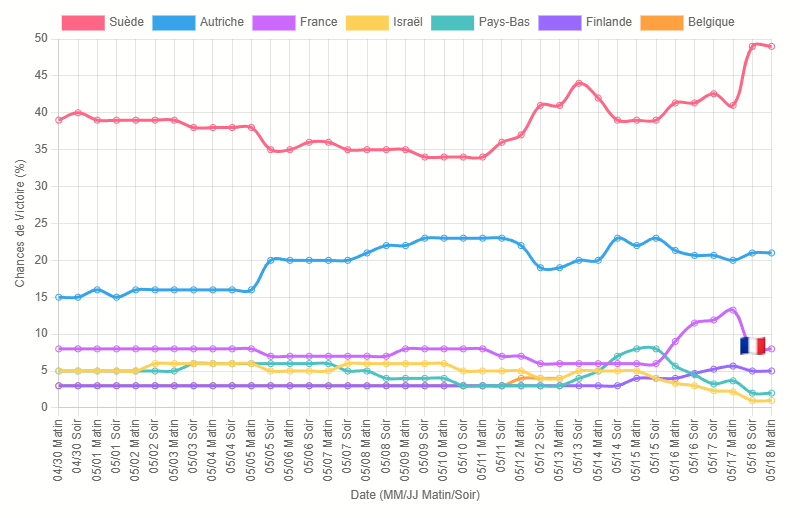
😡 Televoting: immediate reform or guaranteed drift
It was undoubtedly the biggest surprise of the evening in the final. The Israeli candidate came second thanks to a surprisingly high televote, and that raises questions.
Firstly, because the song was objectively weaker than last year. Because the song had the fewest plays on the platforms of all the candidates. And because the candidate did not campaign. No pre-parties. No press briefings. No fan meetings due to security concerns.
So, first of all, we'd like to say that we totally agree with the open letter sent by Martin Green, Eurovision's executive director, after the contest, in which he states that there was no fraud during the televoting... and he's right: all the votes are real, and nobody is questioning their authenticity.
That's the crux of the problem. It's not cheating, but manipulation of influence made too easy. Today, a maximum of 20 votes are authorised per payment card. So you can vote 60 or 80 times, or even more, without breaking any rules. It's allowed... but does that make it fair play?
What we are seeing is the increasing use of this competition, which was conceived as a celebration of diversity and music, as a showcase. For some, the competition is becoming an opportunity to boost their international image... which masks a much darker reality. And that raises questions.
Eurovision deserves better than to be used as a communication tool by powers or groups seeking to smooth out their image. The public too deserves a genuine contest, where music, talent and creativity really take precedence over manipulative campaigns.
🔧 What concrete ways are there to reform televoting?
We feel that the televoting system needs to be reformed as a matter of urgency, or it will end up undermining Eurovision's credibility.
By allowing the mechanics of the vote to be dictated by the most organised or the best funded, we are moving away from the original spirit of the competition. Here are some ideas for consideration.
1. Reduce to 5 the number of votes authorised per bank card or telephone numbercompared with 20 at present. This limit will make mass voting campaigns more costly and more difficult to coordinate, and will restore a form of equity between ordinary viewers and organised groups.
2. Moving from multiple » voting to ordered classification. Instead of allowing up to 20 independent votes, each viewer could submit a ranking of their 5 or 10 favourite songs. This system would better reflect overall preferences, not just isolated » favourites, and would limit the possibility of artificially inflating a single candidate through repetitive voting.
3. Reintroduce professional juries for the semi-finalsIn addition, it will be possible to adjust the weighting of votes in the final (for example, 60 % public / 40 % jury or vice versa). This return would ensure that songs of vocal or artistic quality, less formatted for televoting, could reach the final. This would rebalance the competition between popular emotion and high musical standards. Admittedly, this may offend a certain idea of participatory democracy, but Eurovision is not just an election: it is also an artistic spectacle. And the truth is, there will always be winners and losers.
4. Stricter access to "rest of the world" televoting » by limiting voting to a single verified identity. The idea is not to exclude the international public, but to prevent large-scale coordinated voting campaigns. Yes, this reduces the global reach of the contest in the short term, but it's a reasonable price to pay to preserve the integrity of a sincere vote that represents the values of the contest.
5. Take streaming into account when calculating resultsThis could be achieved by including a weighted share of the streaming figures in the final score (e.g. 10 to 15%), in addition to the public and jury votes. This would make it possible to better reflect the tastes of the public beyond those who make the effort to vote, but also to value the songs that meet with real listening success, often a sign of a lasting impact.
We also need to rethink the balance between juries and the public, including in the semi-finals. Last year, the juries in the semi-finals were abolished to counter what happened in 2023 in the final, with one candidate carried by the jury and one candidate by the public. From now on, the songs sent to Eurovision will be less vocal, calibrated to get through the semi-finals with an easy televote. The other side of the coin is that in the Final, the televote is diluted between many more candidates and no clear winner emerges.
In conclusion...
Eurovision 2025 in Basel proved that the contest is still going strong, that it continues to bring people together and innovate despite a complicated context. But this success must not mask a worrying reality: the televoting mechanism is now too easily manipulated, which jeopardises the seriousness of the contest. If we want to preserve Eurovision as a sincere, representative and fair musical event, it has become essential to reform the televoting system.
It remains to be seen whether the EBU will listen to what the votes say - or no longer say. Because if we continue to favour the most influential over the most inspired, the very soul of Eurovision could be lost.




